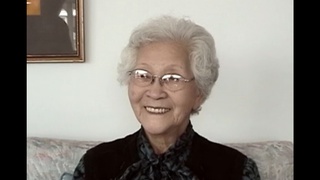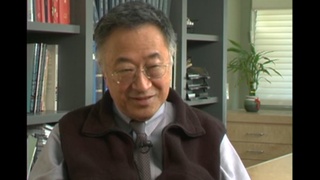Interviews
Learning English upon discovering that family could not return to Peru
At that time, Peru wouldn't take us back. They didn't want to take us back so we didn't know whether we're gonna go to Japan or we're gonna probably stay here in the States. Then we better, if we're gonna stay here, we figured we better learn English. So then this one Japanese American, she said she was going to teach us English. So a group of us Peruvians, we got into two different groups, the older, the older ones and the younger ones and then divided into two different groups because there were two, two Japanese Americans were, volunteered to teach us English, speaking it.
Date: October 26, 2003
Location: Washington, US
Interviewer: Alice Ito
Contributed by: Denshō: The Japanese American Legacy Project.












